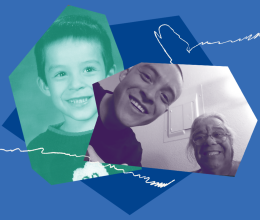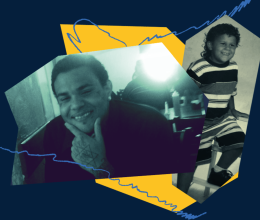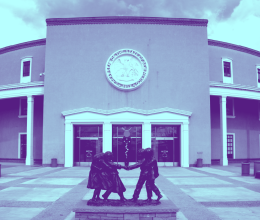Ginger Sharpe is a Certified Peer Support Worker and an advocate for change. She gave this speech at End Mass Incarceration Day at the Roundhouse during the 2024 Legislative Session.
Ladies and gentlemen, esteemed guests, and fellow advocates for justice, thank you for gathering here today at the legislative building in Santa Fe as we raise our voices for change.
Every day, countless individuals in our state are needlessly incarcerated for offenses that can be better addressed through alternative methods.
I stand before you not just as a speaker but as someone who has experienced firsthand two of the broken systems we are here to address. In being a Certified Peer Support Worker (CPSW) that means that I have lived experience and in my lived experience I have been both Incarcerated and I spent five years unhoused and am currently unhoused as I am speaking to you today.
First and foremost, I want to draw attention to a deeply flawed criminal justice system and ending mass incarceration. Every day, countless individuals in our state are needlessly incarcerated for offenses that can be better addressed through alternative methods. This incarceration not only affects the people being incarcerated but their families and children as well. I will never forget the call when I was on probation six years ago that my probation officer forced me to make telling my daughter that due to a technical violation I wouldn’t be coming home that day. The devastation in her voice echoed in my head for a year that I had to sit and finish out my sentence.
Situations like mine are why we must shift our focus from punishment to rehabilitation, investing in proven services such as substance use disorder (SUD) treatment and recovery services and educating people that these services are available. It's time to break the cycle of incarceration and empower individuals to rehabilitate and reintegrate into society as productive healthy people and members of our community.
"Situations like mine are why we must shift our focus from punishment to rehabilitation."
Now, let's shine a light on another broken system – our housing crisis. The unhoused population, often unfairly blamed for property theft and petty crimes, is struggling to survive. The stringent requirements for obtaining housing vouchers – coupled with the lack of affordable housing and landlords discriminating against those with past evictions or criminal backgrounds – create insurmountable barriers.
I speak from personal experience when I say that hopelessness becomes a paralyzing force. We need to reform these systems, not perpetuate cycles of homelessness, unemployment, and despair. We must advocate for policies that provide real opportunities for the unhoused to regain stability, employment, and motivation to make lasting changes in their lives. That’s the only way to solve the issue of the unhoused population.
As we address these broken systems, we cannot merely dwell on the problems – we must also be ambassadors of change, advocates for solutions. In this legislative session, where budgetary decisions are paramount, I propose a shift in priorities. Instead of funneling money into new technologies for law enforcement, let us invest in education – the cornerstone of our future. Our children deserve resources and support to thrive in a safe and nurturing environment.
We must advocate for change, raise awareness about available resources, and collectively work towards a more just and compassionate society.
Moreover, we can repurpose funds towards refurbishing abandoned buildings into affordable housing. By doing so, we offer stability to the unhoused, enabling them to return to work and support themselves and their families. It's time to redirect taxpayer money towards initiatives that foster compassion, understanding, and sustainable solutions.
In conclusion, I implore each one of you to care deeply about our fellow human beings, our community, and our children. Let us not lose sight of our shared humanity. We must advocate for change, raise awareness about available resources, and collectively work towards a more just and compassionate society.
Thank you for your time and let us leave here today with a renewed commitment to care for one another, to actually help each other not just ourselves, and strive for a better future. Thank you again.





